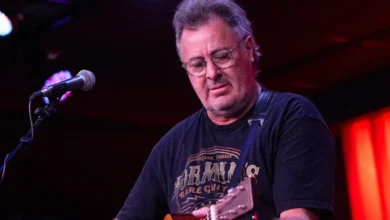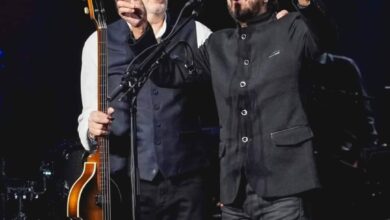Remarkable Show: Elvis Presley’s Grandson | Eager To Catch Him Live!
Benjamin Keough’s appearance on The Voice with his performance of “Folsom Prison Blues” captured the essence of what makes musical competitions so captivating. Not only did he showcase his vocal prowess, but he also brought a sense of authenticity to the stage that is often sought but rarely achieved in reality television. At just 28 years old, Keough stepped into the spotlight, carrying not just his own aspirations but the weight of his family legacy as the grandson of Elvis Presley. This rich lineage adds an intriguing layer to his performances and places expectations on him, but he seems to carry it with a grace that is commendable.
His rendition of the classic Johnny Cash song was not merely an homage; it was a reimagining that allowed listeners to see a different side of the song, infused with Keough’s personal touch and emotional authenticity. The raw intensity he exhibited during his blind audition resonated deeply both with the audience and the judges, creating a memorable moment in the season. The judges’ reactions spoke volumes about his performance; their standing ovation was not just a polite gesture, but a genuine endorsement of his talent.
Kelly Clarkson, a judge known for both her vocal ability and her insightful feedback, called Keough a “genius,” indicating her belief that he possesses not only skill but a distinct vision for his artistry. She noted the similarities in vocal style between him and Elvis, a comparison that was likely both a compliment and a challenge. Recognizing such a legacy can inspire an artist, but it also raises the stakes — the pressure to emulate greatness while establishing one’s own identity can be overwhelming. Keough’s task will be to integrate those influences into a unique sound of his own, and his performance suggested he is already on that path.
Blake Shelton’s positive appraisal of Keough was also noteworthy. The country music veteran praised his genuine delivery and how he revitalized a classic country sound, emphasizing that Keough’s talent lies not just in his voice but also in his ability to connect deeply with the music that he performs. Shelton’s endorsement is significant; as a respected figure in the country genre, his acknowledgment of Keough’s authenticity carries weight and lends credibility to the young artist’s career.
There’s something captivating about Benjamin Keough’s stage presence as well. Beyond the vocals, his confidence and mannerisms engage the audience, creating a bond during performance. The connection he fosters is essential for any artist aiming to make a mark in the industry. Fans are drawn to artists who can evoke emotions and tell stories through their music, and Keough seems to possess that innate gift. The enthusiastic response from the audience during his blind audition signifies that he has struck a chord, quickly rising to fan-favorite status.
As the competition unfolds, viewers are left eager to see how Keough will navigate the various challenges that accompany reality music shows. Each week brings new opportunities for artists to showcase their versatility and growth. Given the impressive start Keough has had, there is a palpable buzz about what his subsequent performances will bring. His ability to seamlessly blend different music genres—country, rock ’n’ roll, and blues—positions him as a versatile contestant ready to experiment with styles and push creative boundaries.
The heart of “Folsom Prison Blues” carries themes of longing, regret, and resilience, which Keough interpreted through a personal lens that resonated with many. His ability to tap into the emotional gravity of the song reflects not only his vocal talent but also his understanding of music as a storytelling medium. Artists often gain fans not just through technical skill but through their capacity to evoke emotions and share relatable experiences through their craft.
With his established family lineage, there is an inherent curiosity surrounding how Keough intends to carve out his space in the music industry. The comparisons to his grandfather might seem like a double-edged sword; while they offer him immediate attention, they also come with the challenge of distinguishing himself from that monumental legacy. Yet, Keough appears poised to embrace that challenge rather than shy away from it, demonstrating a level of maturity and artistic intent.
The musical journey of Benjamin Keough on The Voice is not just about competition; it’s about personal growth, musical evolution, and the rediscovery of classic sounds through a modern lens. His efforts could serve as both a tribute to his heritage and a fresh take on timeless music, appealing to both older generations familiar with Elvis Presley and younger audiences looking for new talent. Each performance holds the potential to surprise viewers and redefine what they expect from a contestant with such a notable lineage.
As Benjamin Keough continues to navigate the complexities of The Voice, he is likely to gather experiences that may shape his future in the music industry. Engaging with other talented artists, benefitting from the constructive criticism of seasoned judges, and interacting with a diverse fan base will contribute to a unique artistic development. His journey is poised to be one of growth not only as a performer but also as an individual, learning to balance the influences of his heritage with his aspirations as a modern musician.





